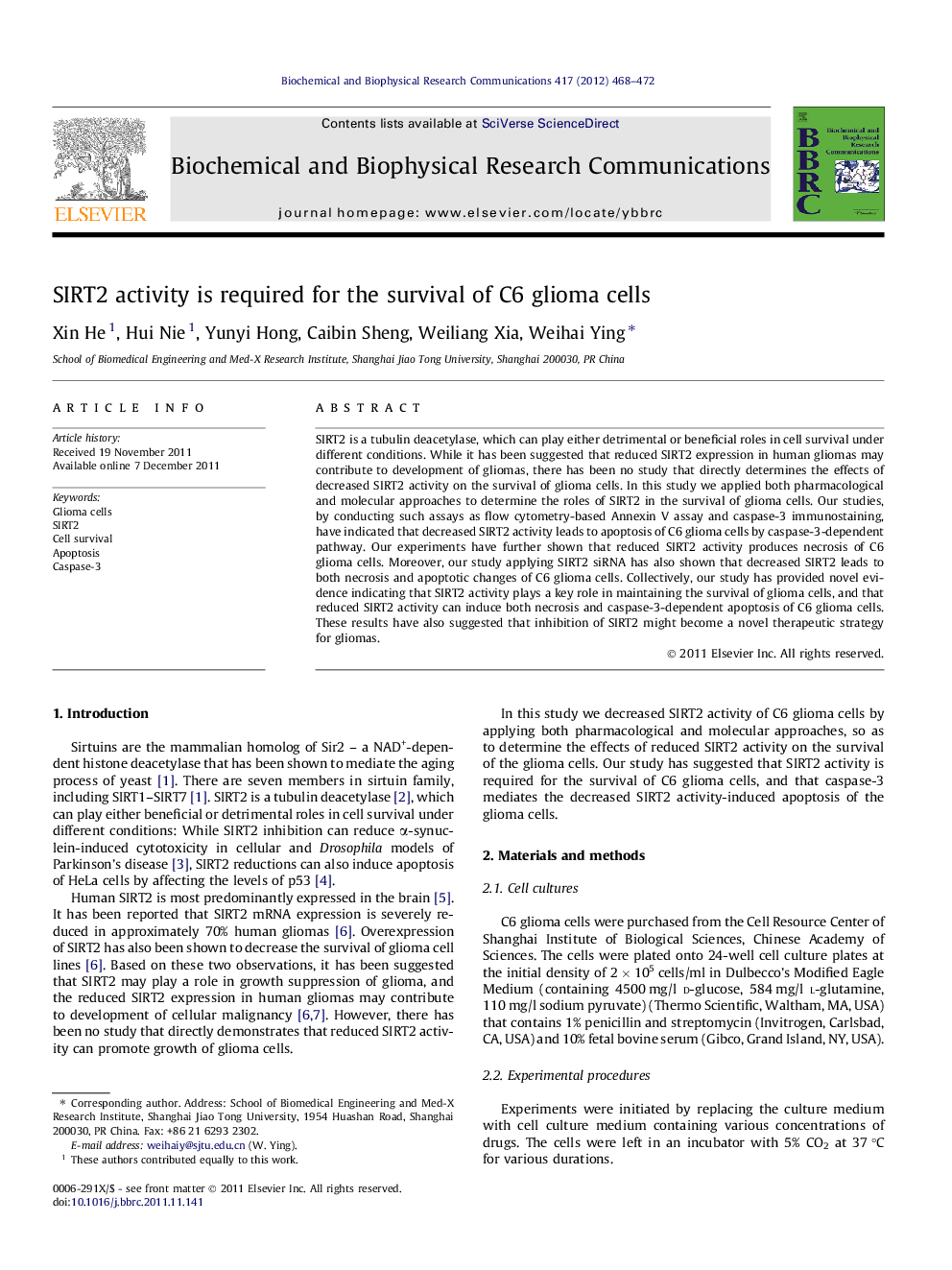| Article ID | Journal | Published Year | Pages | File Type |
|---|---|---|---|---|
| 1930146 | Biochemical and Biophysical Research Communications | 2012 | 5 Pages |
SIRT2 is a tubulin deacetylase, which can play either detrimental or beneficial roles in cell survival under different conditions. While it has been suggested that reduced SIRT2 expression in human gliomas may contribute to development of gliomas, there has been no study that directly determines the effects of decreased SIRT2 activity on the survival of glioma cells. In this study we applied both pharmacological and molecular approaches to determine the roles of SIRT2 in the survival of glioma cells. Our studies, by conducting such assays as flow cytometry-based Annexin V assay and caspase-3 immunostaining, have indicated that decreased SIRT2 activity leads to apoptosis of C6 glioma cells by caspase-3-dependent pathway. Our experiments have further shown that reduced SIRT2 activity produces necrosis of C6 glioma cells. Moreover, our study applying SIRT2 siRNA has also shown that decreased SIRT2 leads to both necrosis and apoptotic changes of C6 glioma cells. Collectively, our study has provided novel evidence indicating that SIRT2 activity plays a key role in maintaining the survival of glioma cells, and that reduced SIRT2 activity can induce both necrosis and caspase-3-dependent apoptosis of C6 glioma cells. These results have also suggested that inhibition of SIRT2 might become a novel therapeutic strategy for gliomas.
► The SIRT2 inhibitor AGK2 induced caspase-3-dependent apoptosis of C6 glioma cells. ► The SIRT2 inhibitor AGK2 induced necrosis of C6 glioma cells. ► SIRT2 silencing induced both necrosis and apoptotic changes of C6 glioma cells. ► Our study suggests that SIRT2 activity is required for the survival of C6 glioma cells. ► Inhibition of SIRT2 may become a new strategy for treating gliomas.
